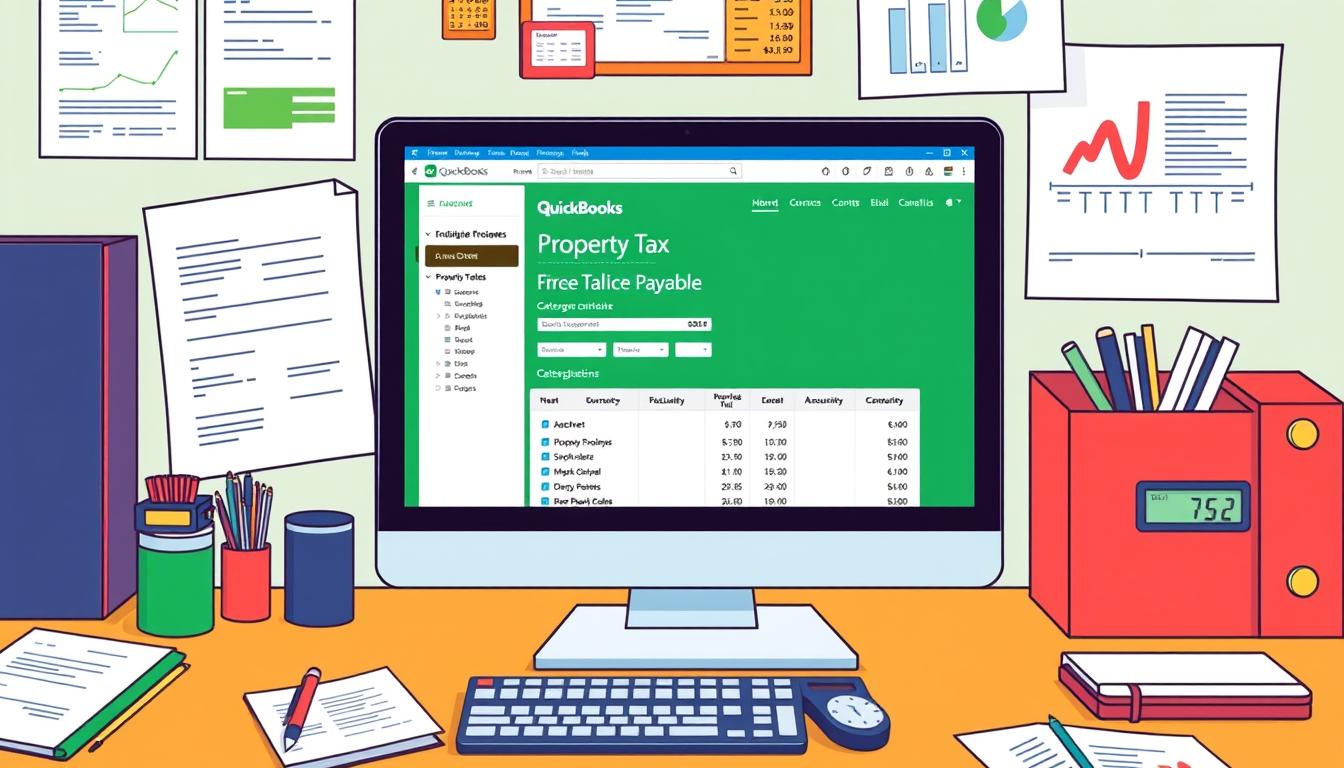
Where should i list quickbooks certified on my resume

Table of Contents
When you’re looking for a job in accounting, showing off your QuickBooks certification on your resume can really help. It’s important to know where to put it to stand out. This article will give you tips on how to make your accounting certification shine on your resume.
It will cover how to format your resume, where to put your certification, and how to make it pop. You’ll learn how to make your certification visible to potential employers.
Key Takeaways
- List QuickBooks certification prominently to enhance marketability.
- Utilize effective resume formatting for better readability.
- Incorporate your certification in relevant sections such as education and skills.
- Highlight how your certification relates to job responsibilities.
- Update your resume to reflect all new qualifications regularly.
- Network and leverage platforms like LinkedIn to boost your job search.
Understanding the Importance of QuickBooks Certification
Getting a QuickBooks certification is a big deal in the accounting world. QuickBooks is a key tool for businesses to manage their finances and reports. Employers look for people who know how to use it well, as it makes accounting tasks easier.
QuickBooks certification helps both you and your employer. It makes your resume stand out and shows you’re serious about your accounting skills. It keeps you up-to-date with the latest in accounting.
Many employers want to hire people with QuickBooks certification. They see it as a sign of your skills and knowledge. This makes you a strong candidate in a competitive job market.
Best Practices for Resume Formatting
Making a resume that stands out means paying attention to effective resume design. Using clear formatting helps your QuickBooks certification pop. Good resume formatting tips make your resume easy to read.
Keep your resume looking professional with consistent fonts and spacing. Don’t make it too busy. Use clear headings and bullet points to organize your info. This makes your achievements clear and easy to see.
- Use bold titles for sections like Education, Skills, and Work Experience.
- Limit the use of different fonts to two or three styles for consistency.
- Keep bullet points concise for each job responsibility to ensure clarity.
- Utilize white space effectively to prevent cramped text.
Following these tips not only showcases your QuickBooks certification. It also shows you’re professional and appealing to hiring managers. A well-designed resume can help you get that important interview.
Where to Include QuickBooks Certification on Your Resume
Figuring out where to put QuickBooks certification on your resume is key. It can make a big difference in getting an interview. There are different ways to show this certification, like in the education or skills section. This helps employers see you’re ready for certain jobs.
In the Education Section
Putting QuickBooks certification in the education section is a good idea. This section lists your education and any certifications you have. It shows you’re serious about your career.
By placing QuickBooks certification here, you make it easy for employers to see your qualifications. It adds credibility to your resume.
In the Skills Section
You can also put QuickBooks certification in the skills section. This section is for listing technical and soft skills needed for accounting jobs. Adding QuickBooks certification here shows you’re skilled in using the software.
This approach tells employers you have the right skills for accounting roles. It’s a smart way to stand out.
Highlighting QuickBooks Certification in Your Work Experience
Adding QuickBooks certification to your resume can make you more attractive to employers. This section should show how your certification helps you do your job better. By giving examples, you prove you know QuickBooks well and have used it in real work.
Relating Certification to Job Responsibilities
When writing your work experience section, use these tips to link your QuickBooks certification to your job:
- Specific Projects: Talk about projects where you used QuickBooks, explaining your role and the results.
- Software Proficiency: Show how your certification makes you better at tasks like managing money owed and money paid.
- Problem-Solving Techniques: Share times when your QuickBooks knowledge helped solve tough accounting problems.
- Collaboration: Explain how you used QuickBooks with your team to make financial reports more accurate and efficient.
By showing how QuickBooks certification helps you do your job better, you show you’re a valuable candidate. This can make you stand out from others.
Using a Summary Statement Effectively
A resume summary statement is a strong start to your qualifications. It’s a chance to show off your skills and career goals in a few words. An effective summary grabs a hiring manager’s attention fast. Adding your QuickBooks certification makes your statement even more powerful, showing you meet employer expectations.
Incorporating QuickBooks Certification
When writing a summary for QuickBooks certification, highlight your main skills and goals. Here are some tips for a great resume summary statement:
- Start with a strong opening that mentions your QuickBooks certification.
- Include your QuickBooks skills, like accounting and software use.
- Share your career goals that link your certification to your future.
An example of a good summary could be: “Detail-oriented accountant with QuickBooks certification and proven expertise in financial management, seeking to leverage skills in a dynamic organization.” This short summary focuses on key points and leaves a lasting impression.
Relevant Job Titles for QuickBooks Certified Professionals
Knowing the job titles for QuickBooks professionals is key for those looking to use their certification. Employers often seek specific skills that match their needs. This makes it important to know the right job titles. QuickBooks certified professionals have many options in accounting.
By recognizing these roles, job seekers can make their resumes stand out. This helps them catch the eye of potential employers.
Common Positions Requiring Certification
Many accounting jobs need QuickBooks certification. Employers like candidates with these skills. It shows they know how to use financial software common in the field.
- Bookkeeper
- Accountant
- Financial Analyst
- Payroll Specialist
- Accounts Payable/Receivable Clerk
- Tax Preparer
- Budget Analyst
| Job Title | Typical Responsibilities | QuickBooks Usage |
|---|---|---|
| Bookkeeper | Maintaining financial records, processing invoices | Utilized for managing transactions |
| Accountant | Preparing financial statements, tax returns | Used for reporting and analysis |
| Financial Analyst | Analyzing financial data, forecasting | Involved in budgeting and projections |
| Payroll Specialist | Managing payroll for employees | Used for payroll processing |
| Tax Preparer | Preparing income tax returns for individuals or businesses | Utilized for tax reporting |
Tailoring Your Resume for Accounting Positions
Making a tailored resume for accounting jobs can really help you stand out. It’s not just about listing your experiences and skills. You need to use specific accounting keywords that match the job you want.
Keywords to Include
Using the right accounting keywords makes your resume stronger. It also helps it pass through applicant tracking systems (ATS). Look for keywords that match the job description. Here are some key ones to think about:
- Financial Reporting
- Accounts Payable
- Accounts Receivable
- General Ledger
- Reconciliation
- Budgeting
- Tax Preparation
By highlighting these areas, you show you’re a good fit for different accounting jobs. Choosing the right keywords not only shows your skills. It also helps you get past automated screening systems used by many companies.
| Keyword | Related Skills | Importance |
|---|---|---|
| Financial Reporting | Analyzing financial data | Critical for accuracy and compliance |
| Accounts Payable | Invoice processing | Essential for maintaining cash flow |
| Reconciliation | Comparing records | Vital to ensure accuracy in accounts |
| Budgeting | Expense forecasting | Important for financial planning |
Utilizing Online Profiles and Portfolios
Having a professional online presence is key. Platforms like LinkedIn are great for creating an online resume profile. They let you show off your QuickBooks skills.
A digital resume is more than just listing skills. It’s a chance to share work samples and connect with more people. This way, you can show how you’ve used QuickBooks in real projects. Employers like to see this kind of proof.
Make sure your online profiles are current. Update your QuickBooks certification, job history, and project work. A good online image can open doors to new job chances.
Networking and Referral Strategies
In today’s job market, networking in accounting can really boost your career. Building relationships in the industry can lead to job opportunities. Often, personal connections can open doors to jobs that aren’t widely advertised. It’s key to use effective networking strategies to make the most of these chances.
Leveraging LinkedIn for Opportunities
LinkedIn is a great tool for finding jobs. Start by connecting with people in your field and your alma mater. Join groups related to accounting to share knowledge and ask questions. This helps you stand out and get noticed by employers.
Also, keep your LinkedIn profile up to date with your achievements, like your QuickBooks certification. Send personalized connection requests to people you look up to. This helps build real connections.
Don’t miss out on LinkedIn events or webinars about accounting. These events offer valuable insights and help you grow your network. Using LinkedIn for networking can lead to job referrals that can help you find your next role.
Common Mistakes to Avoid
Many candidates face several resume pitfalls that can hurt their chances. Avoiding common mistakes can make your application stand out. One key thing to watch out for is avoiding resume overload.
Overloading Information
Trying to include too much information is a common error. It can hide the important stuff, like your QuickBooks certification. It’s crucial to keep your resume clear and to the point. Here are some tips:
- Prioritize relevant experience: Stick to jobs and roles that fit your career goals.
- Use clear language: Stay away from jargon and complex terms that confuse.
- Be selective with details: Show off your achievements without listing every task or project.
In short, avoiding too much information lets your skills shine. By avoiding these mistakes, you’re more likely to catch a hiring manager’s eye.
Updating Your Resume Regularly
Regular resume updates are key in today’s job market. They help keep your resume current, showing off your growing skills and experiences. By staying on top of updates, you won’t miss out on chances for professional growth, like getting new certifications or taking on more roles.
It’s smart to check your resume often. After a training or reaching a career goal, update your resume. This shows your growth and makes you more attractive to employers.
Those who keep their resumes up-to-date have an edge in finding new jobs. They show they’re always learning and ready to adapt. Adding things like QuickBooks certification can really help your job search, making updates a vital part of your career plan.
Conclusion
QuickBooks certification can really boost your job chances in accounting. We’ve looked at how to highlight it on your resume. This includes where to put it, making it relevant to your job, and customizing it for each job you apply for.
It’s important to show your QuickBooks certification well on your resume. By using clear layouts and the right keywords, you show you’re qualified. This makes you stand out as a strong candidate.
Using these tips can make your resume catch the eye of hiring managers. This could lead to great job opportunities in accounting. Remember, your QuickBooks certification is more than a piece of paper. It’s a key to unlocking your career potential.
FAQ
Why is QuickBooks certification important for my career?
QuickBooks certification shows you know how to use important accounting software. It makes you more attractive to employers. It also shows you’re serious about growing in your career.
Where should I list my QuickBooks certification on my resume?
List your QuickBooks certification in both the Education and Skills sections. In Education, put it with your degrees. In Skills, list it with other accounting-related skills.
What are the best practices for resume formatting to highlight my QuickBooks certification?
Keep your resume clean and easy to read. Use clear headings and bullet points. This makes it easy for hiring managers to see your QuickBooks certification and other skills.
How can I incorporate QuickBooks certification into my work experience section?
Connect your QuickBooks certification to your job tasks. Share examples of how you used QuickBooks. This shows your practical skills and value to employers.
What should I include in my resume summary statement regarding my QuickBooks certification?
Mention your QuickBooks certification in your summary. It highlights your accounting skills and career goals. This grabs the attention of hiring managers.
Which job titles typically require QuickBooks certification?
Jobs like Bookkeeper, Accountant, and Financial Analyst often need QuickBooks certification. Knowing these roles helps you tailor your resume for them.
How can I tailor my resume specifically for accounting positions?
Use keywords from job descriptions in your resume. Words like “financial reporting” and “accounts payable” help you pass ATS checks. This makes your resume more relevant to employers.
Why should I utilize online profiles and portfolios in addition to my resume?
A professional online presence, like LinkedIn, increases your visibility. It showcases your QuickBooks certification and skills. This digital portfolio proves your expertise in accounting.
How can networking on LinkedIn help my job search?
LinkedIn networking can greatly help your job search. Connect with professionals, join groups, and discuss topics. This can lead to job leads and referrals that aren’t advertised.
What are common mistakes to avoid when writing my resume?
Avoid overloading your resume with too much info. This can make your QuickBooks certification less noticeable. Keep it clear and focused on the most important information.
How often should I update my resume to reflect my QuickBooks certification?
Update your resume after big career changes or learning experiences. Keeping your resume current with your QuickBooks certification and skills is key to staying competitive.
- Tags: intuit quickbooks, intuit quickbooks login, intuit quickbooks online, quickbook, quickbooks, quickbooks accounting software, quickbooks customer service, quickbooks customer service number, quickbooks desktop, quickbooks desktop 2024, quickbooks log in, quickbooks login, quickbooks login online, quickbooks online, quickbooks online accountant, quickbooks online accounting, quickbooks online customer service, quickbooks online login, quickbooks online pricing, quickbooks payroll, quickbooks self employed, quickbooks software, quickbooks support phone number, quickbooks time, quickbooks time login, quickbooks workforce
Top Products
- QuickBooks Desktop Pro 2024 US Version
- QuickBooks Desktop Pro 2023 US Version
- QuickBooks Desktop Pro 2022 US Version
- QuickBooks Desktop Premier 2024 US Version
- QuickBooks Desktop Premier 2023 US Version
- QuickBooks Desktop Premier 2022 US Version
- QuickBooks Desktop Accountant 2024 US Version
- QuickBooks Desktop Accountant 2023 US Version
- QuickBooks Desktop Enterprise 2024 US Version
- QuickBooks Desktop Enterprise 2023 US Version
- QuickBooks for Mac 2024
- QuickBooks for Mac 2023
Popular Posts

How to categorize property tax payable in quickbooks online
Knowing how to categorize property tax payable in QuickBooks Online is key for keeping your financial records right. Property tax payable is the amount your business owes in property taxes. It can greatly affect your financial health. By learning to categorize property tax well, businesses can make sure their financial statements show their true obligations.
This knowledge is crucial as we dive into the steps and best practices for handling property tax payable in QuickBooks Online.
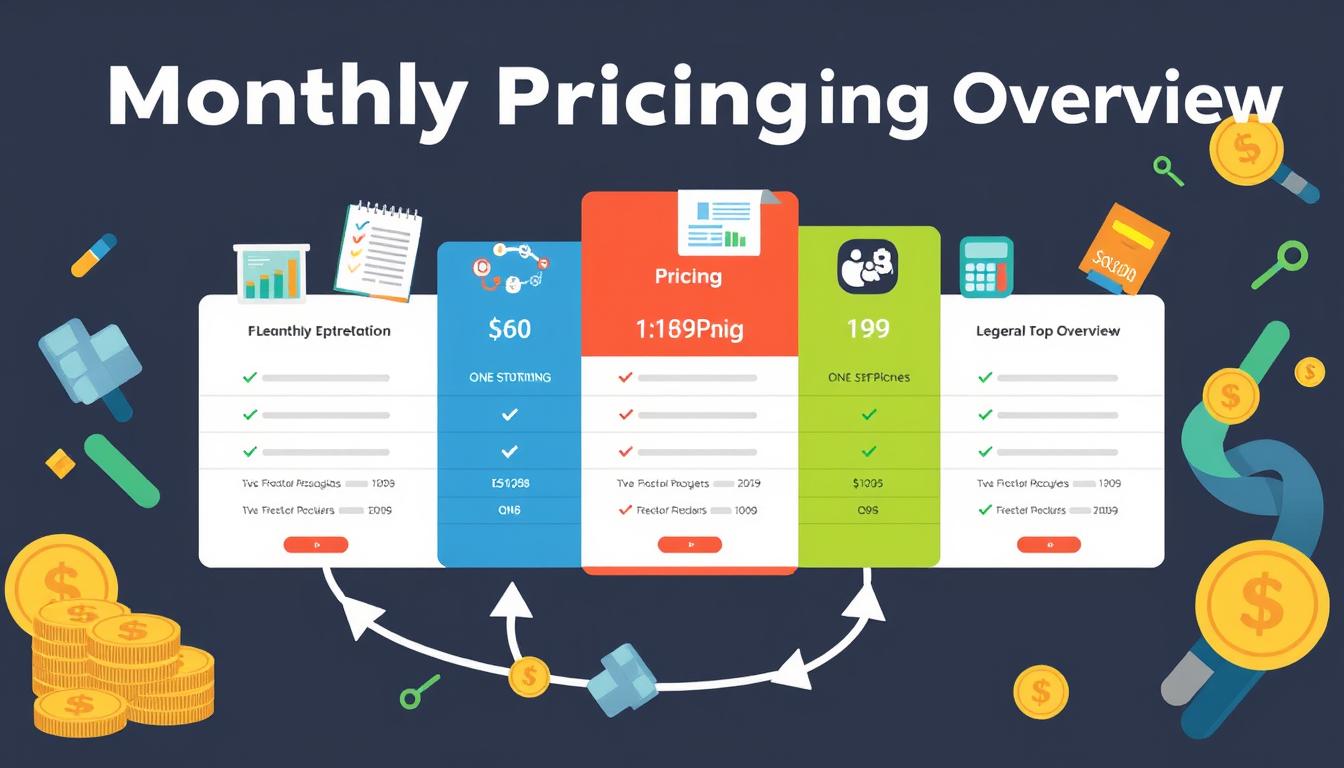
How much is quickbooks per month
Many users want to know the QuickBooks pricing for monthly costs. QuickBooks has various plans for different business needs. This lets users pick the right plan for their financial management.
What affects the QuickBooks monthly cost includes the QuickBooks edition, payment frequency, and extra features. This guide will explain the details of these plans. It will help you understand the costs of using QuickBooks for your business.

How does quickbooks work
QuickBooks is a key accounting software made by Intuit. It helps businesses manage their finances well. It works on a cloud-based platform, so users can access their financial data from anywhere.
This software makes tasks like bookkeeping, invoicing, and financial reporting easier. In this article, we’ll look at QuickBooks’ main features, its users, benefits, and challenges. We aim to help you understand how it can improve your financial management.

How do you record insurance payment in quickbooks
Recording insurance payments in QuickBooks is key for good insurance accounting. It helps business owners manage their money well and keep their books right. This is vital for the health of any business.
In this guide, we’ll show you how to record insurance payments easily. We’ll use QuickBooks guides and tips from accounting experts. This way, you can keep your financial records up to date.

How do you clock in hours in quickbooks desktop
In today’s fast-paced world, tracking time well is key for good payroll management. This article will show you how to clock in hours in QuickBooks Desktop. It’s a top accounting software that makes managing tasks easier. By learning how to track time, businesses can work better and pay employees right.
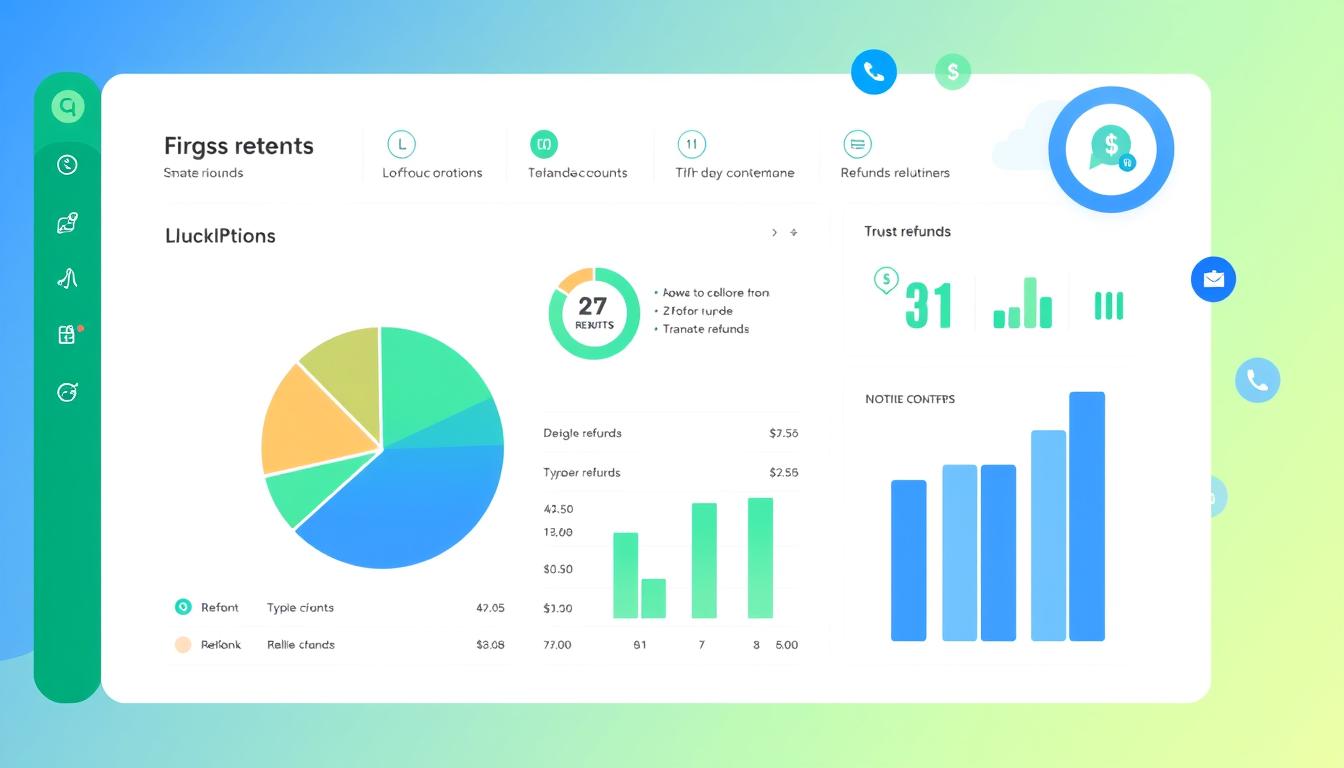
How are refunds categorized in quickbooks online
Knowing how to categorize refunds in QuickBooks Online is key for good financial management. It’s important to record refunds correctly to keep your finances clear. Businesses of all sizes can benefit from knowing how to do this right.
This knowledge helps make your financial records clear and accurate. It’s a basic step that can make a big difference.

Does quoteiq accept quickbooks online payments
Payment solutions are key in today’s business world. Many are looking into how platforms like QuoteIQ can improve their invoicing. A big question is: does QuoteIQ accept QuickBooks Online Payments? This article explores how QuoteIQ and QuickBooks Online Payments work together.
This shows how important it is to have good payment integration. It helps with cash flow and makes operations smoother. We’ll look at the benefits of using QuoteIQ with QuickBooks Online Payments. Plus, we’ll show you how to set it up.

Can you delete history under audit log quickbooks online
It’s important to know if you can delete entries from the audit log in QuickBooks Online. This is key for businesses that focus on financial accuracy and follow the rules. The audit log QuickBooks Online keeps a detailed history of changes to financial data. This ensures that all account activities are recorded clearly.
By tracking these changes, the audit log is crucial for good financial management. We will look into why the audit log matters and what happens if you try to delete its records. We’ll see how these actions impact your QuickBooks history.
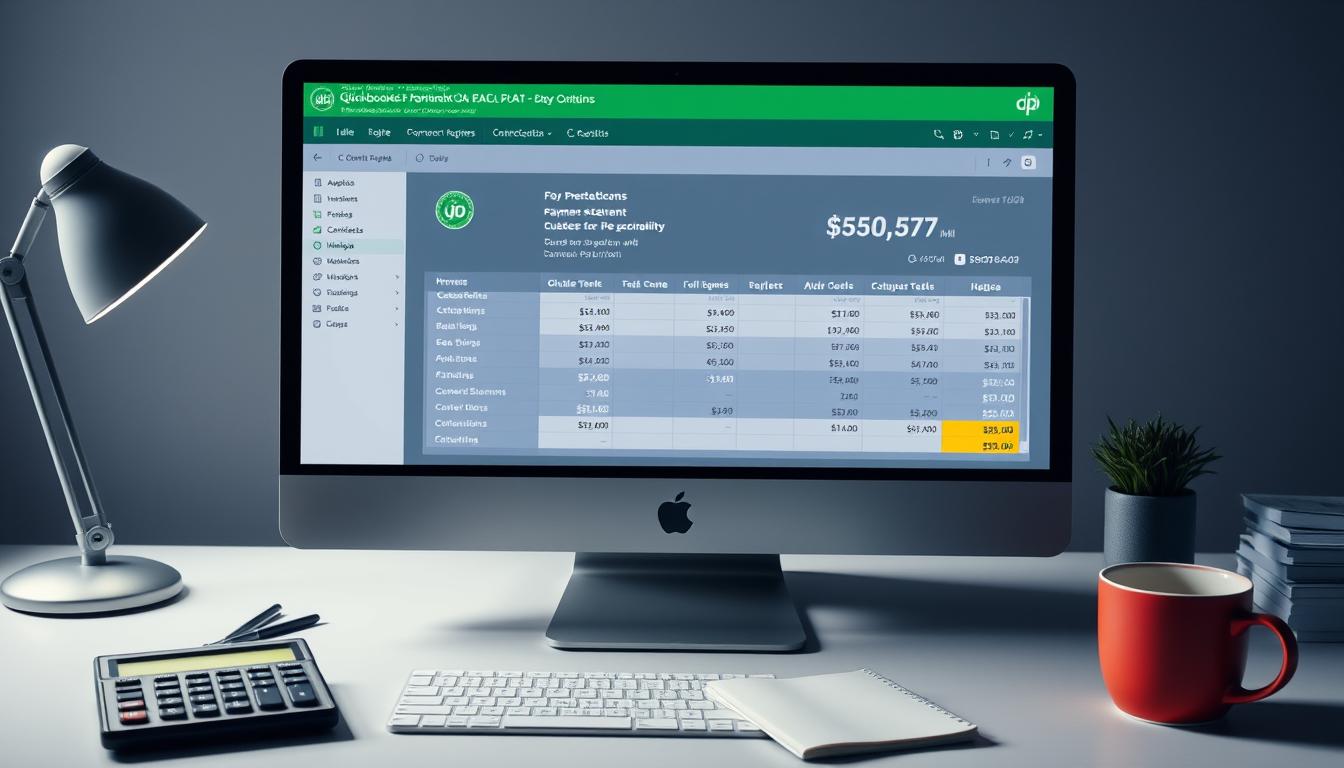
Can quickbooks recievepayment by statements rather that individual invoices
In today’s fast-paced world, businesses need quick and easy ways to handle payments. Many QuickBooks users wonder if they can pay by statements instead of invoices. This method makes accounting simpler for companies.
Using payment statements has big advantages over traditional invoices. QuickBooks helps businesses manage payments better. This article will show you how payment statements work in QuickBooks and how they can help your business.
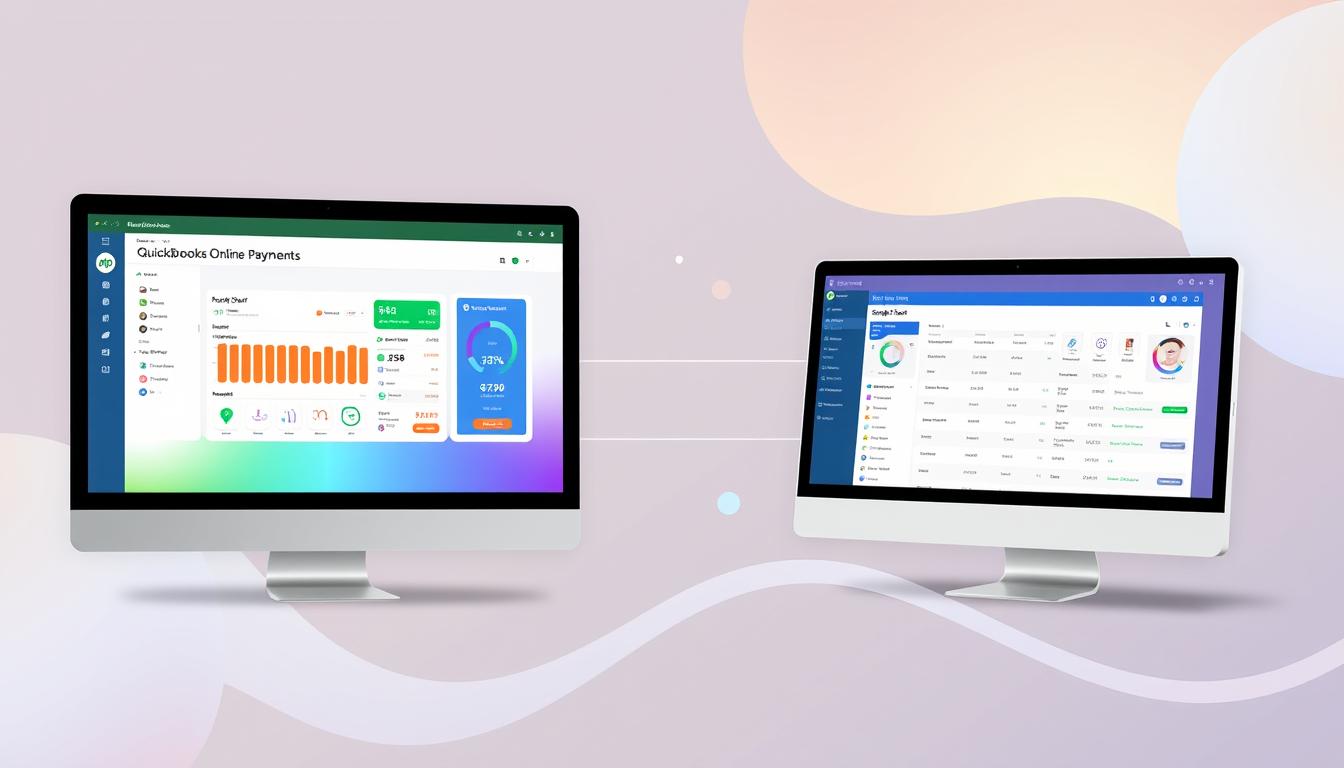
Can quickbooks online payments work with simple start
For small business owners, the question of whether QuickBooks Online Payments and QuickBooks Simple Start can work together is key. This integration is vital for managing finances effectively. It helps users handle transactions smoothly while using a basic accounting tool for solo businesses.
QuickBooks Online Payments lets users take payments online, making cash flow management easier. In this article, we explore how these two tools can boost efficiency for small businesses.